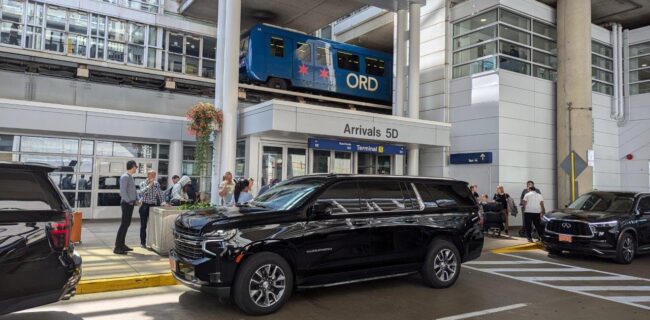How the US Government Shutdown Can Impact Travel
When the US government faces a shutdown, it affects more than politics in Washington — it reaches into airports, highways, and the lives of travelers nationwide. From delays at TSA checkpoints to slower passport processing, shutdowns create uncertainty that can disrupt even the most well-planned trip.
For business travelers, families, and event-goers flying into or out of Chicago, knowing what to expect is essential. Many travelers continue to rely on professional ground transportation for predictable service — including our Chicago limousine company, which continues full operations during government shutdowns to ensure dependable airport transfers and corporate travel throughout Illinois.
Why a government shutdown impacts travel systems
A federal shutdown happens when Congress fails to pass a funding bill. As a result, many government agencies operate with reduced staff or suspend nonessential activities. While some employees are classified as “essential,” meaning they must continue working, others are temporarily furloughed until funding resumes.
In the travel sector, this means fewer support staff across multiple departments — from passport offices and airport administration to national park rangers and transportation logistics. The longer the shutdown lasts, the more noticeable these effects become for travelers and airline operators alike.
Airports, TSA screening, and air traffic control
The Transportation Security Administration (TSA) and Federal Aviation Administration (FAA) are both considered essential, meaning airport screening and air traffic operations continue even during a shutdown. However, delayed paychecks can lead to staffing shortages if employees call in sick or take temporary jobs elsewhere. This was evident during the 2019 shutdown when several airports, including O’Hare and Midway in Chicago, faced longer security lines and minor flight disruptions.
Air traffic controllers also remain on duty, but with reduced administrative support and slower training for new hires. In practical terms, this can lead to more flight delays, longer taxi times, and additional strain on flight scheduling. Business travelers and event attendees should always allow for flexible itineraries when connecting through major hubs like Chicago O’Hare International Airport.
To avoid missed meetings or late arrivals, many travelers now schedule private ground transportation from the airport to their destination. Using a pre-booked limousine or executive car service allows for direct communication with a driver and eliminates the stress of last-minute delays.
Passport and visa services
Passport processing often continues as long as the U.S. State Department has reserve funds. Still, if those funds run out, delays begin to build quickly. Travelers applying for new passports or visa renewals should expect slower turnaround times and fewer available appointments.
According to the U.S. State Department, applicants can still mail in renewals and track progress online, but those with upcoming international travel should apply as early as possible. Business travelers in particular should build extra lead time into their planning cycles.
National parks, monuments, and tourist destinations
National parks, museums, and other federally funded attractions may close entirely or operate with minimal staff during a shutdown. Some remain accessible but without maintenance, restrooms, or visitor services. This can cause unexpected inconvenience for road trippers, families, and tour groups visiting popular locations.
In Illinois and surrounding states, outdoor attractions like Indiana Dunes National Park or the Abraham Lincoln Presidential Library may reduce hours or suspend guided programs. Travelers should always confirm park status before setting out — and consider alternate local experiences if closures occur.
Business travel and event logistics
Corporate travel remains one of the most affected sectors during a shutdown. Conferences, expos, and trade events often depend on federal coordination, especially when held near major airports or convention centers. Flight delays or longer security checks can quickly disrupt tight schedules.
For business professionals flying through Chicago, ground travel reliability becomes a key advantage. Booking transportation ahead of time ensures that even if flights are delayed, a driver will be ready and waiting for immediate pickup. Our Illinois limo rates page lists affordable options for corporate transfers, airport pickups, and interstate meetings.
Local limo services continue to operate
Despite shutdown-related disruptions, local limousine and executive car companies remain active. They play a vital role in helping residents and travelers move safely between airports, hotels, and meetings. Many offer flight tracking, flexible wait times, and all-hours scheduling — ensuring smooth service even during unpredictable travel conditions.
To stay mobile and prepared, you can explore our full range of service options at LimoChicagoland.com. Whether you need airport transfers, corporate travel, or point-to-point rides across Illinois, professional chauffeurs are ready to keep you moving — shutdown or not.

